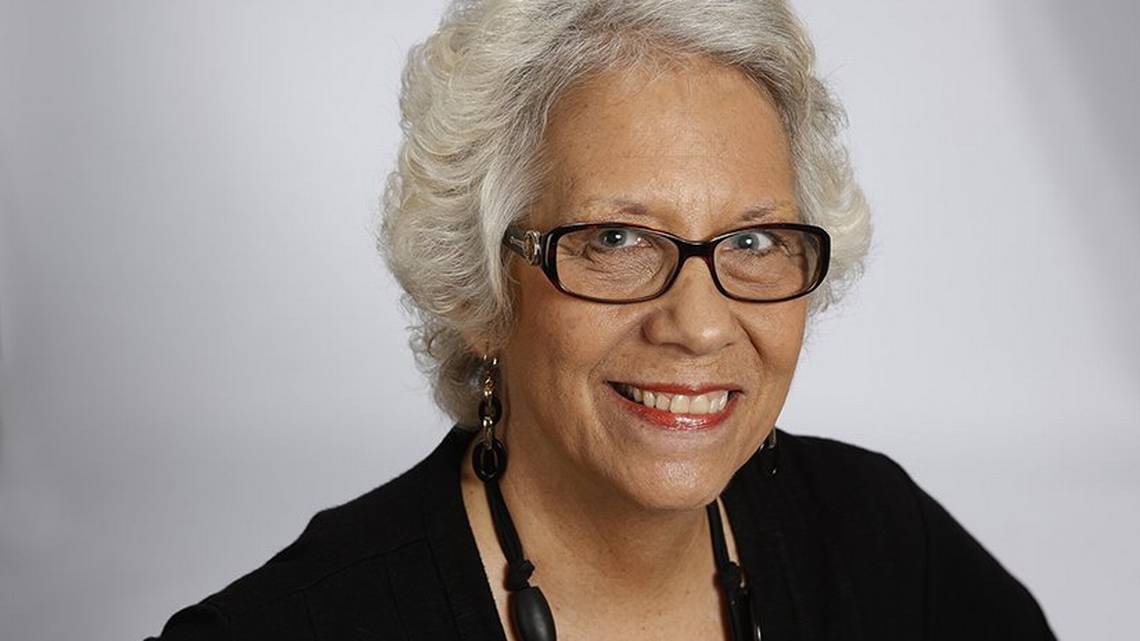
Christine Dolen | former ATCA leader and major force in regional theater

Christine Dolen, a former leader of the American Theatre Critics Association and a major force in evolving local theater itself, died Saturday in her home in Davie, Florida at the age of 74.
The world of South Florida theater — from its presentations to its artists to its standing in the national scene — was inestimably transformed in large part to the dedication and vision the arts journalist and critic.
Over 43 years, her insight, taste, writing skill, wry humor, and compassion elevated and helped evolve the arts community while working for the Miami Herald and ArtsburstMiami.com.
When she began in 1979, South Florida was a home for some community theaters and small if promising professional theaters sparsely scattered around the region. In literally thousands of subsequent reviews, in-depth features, incisive profiles, and think pieces in print, national magazines and online, she devoted her urging, advice, and encouragement to help transform the area into scores of regional theaters producing everything from Neil Simon to Nilo Cruz to experimental art to world premieres that moved to Broadway and across the country.
A dozen other significant names focused on their particular venues. But she had a region-wide influence that resulted in a steady growth of size, breadth and depth by spotlighting quality, imagination, inventiveness and art pushing at the boundaries of the usual and the expected.
This was acknowledged by the local theater community in choosing her as the only person to twice receive the Carbonell’s George Abbott Award in 2001 and 2023 for “Outstanding Achievement In The Arts, awarded to an individual who has contributed significantly to the artistic and cultural development of the region.”
In the process, she remained scrupulously fair and honest in her journalism, yet she tirelessly championed and encouraged the evolution of the art form in the region. She highlighted the Miami area’s cultural diversity, charted the rise and fall of theater companies, and spotlighted specific artists, especially playwrights like Cruz and Tarrell Alvin McCraney. It is not hyperbole to say that many theater companies would not continue to exist today and certainly not in the form they do, if not for her shining a spotlight on their work.
Even after a long battle with progressive lung disease (even coming to review with an oxygen tank in tow until last spring), her death stunned literally hundreds of theater artists and journalists across the country.
Most memorable was her special relationship with the theater community: remarkable as an unassailably ethical journalist who called ‘em as she saw ‘em, but also someone who was an interacting part of the community – a difficult balancing act. Her professionalism and her judgment were deeply respected, but scores of the literally hundreds upon hundreds of Facebook reactions and condolences centered on her personal interaction with artists and colleagues.
Her support was constant during difficult periods. Tanya Bravo, Executive Artistic Director of Juggerknot Theatre, wrote, “During COVID, when we were all in despair, it was Christine who told us to keep going. She was always there, whispering in our ears, urging us to do the hard work and keep the arts alive, even when we were exhausted.”
Her vision encompassed, but far exceeded, traditional work and traditional companies. Actress Kameshia Duncan wrote, “Thank you for championing the ‘renegade’ theatre companies and actors—those who challenged the status quo and REFUSED to fit the regional theater mold. Your words gave us the power to break through windows and shatter glass ceilings.”
And actress Margery Lowe’s words echoed those of many colleagues: “There aren’t enough words to express what she did for theater (here and everywhere), how much her deep intelligence, inexhaustible passion, and sharp insight made us all strive to be better artists. The artist critic can hold one of the most important jobs in a society… demanding excellence in the telling of the human condition. She did just that… with as much care and reverence as anyone ever could. She believed in us to tell the stories, and to tell them with dignity and respect. As a woman, a human being, Chris, you were simply one of the kindest and most generous ones I’ve ever been blessed to know. We are an emptier world now.”
Her circle of friends extended to other arts. Local journalist Noreen Marcus, who knew her through a book club, recalled, “What struck me was the way she never stopped treasuring her friends. While she was in hospice care, a time when most people would be focused on themselves, Christine was focused on others. She never lost her curiosity about us and what we were doing. She enjoyed swapping stories about the past. She didn’t want us to feel sorry for her, but to be comfortable in her presence. She never stopped engaging eagerly with life. Christine modeled how to die with grace and dignity.”
She was born in Columbus, Ohio, on June 23, 1950. Her father was an actor who played Hickey in the 1956 off-Broadway production of The Iceman Cometh and Hemingway in the South Florida production of Papa.
Education remained a part of her life since earning bachelor’s and master’s degrees in journalism from The Ohio State University. Besides guest lecturing in South Florida, she was a John S. Knight Journalism Fellow at Stanford University in 1984-85, and a senior fellow at Columbia University’s National Arts Journalism program in 1999.
While she covered work through the three-county South Florida area, she frequently reviewed work in Europe, New York and around the country.
Her critic role began at the Detroit Free Press writing about rock music, also her first assignment at the Miami Herald. But her theater work appeared in a dozen other outlets including American Theatre magazine, which also named her among a dozen of the country’s most influential theater critics in 2011.
Over time, she served on the 1997 Pulitzer Prize for Drama committee, was a longtime voter for the Carbonell Awards and as an editorial board member of the Best Plays Theater Yearbook. Other recognitions included the Green Eyeshade Award from the Atlanta chapter of the Society of Professional Journalists, first place in arts writing in the Missouri Lifestyle Journalism Awards, South Florida’s Silver Palm Award and the South Florida Theatre League’s Remy Award.
She was one of the early figures in the creation of the Carbonell Awards, a charter member and later president of the South Florida Critics’ Circle.
Dolen and the late Fort Lauderdale-based critic Jack Zink organized ATCA’s 1996 conference in Miami.
Dolen’s survivors include her husband John Dolen, a former features editor at the South Florida Sun Sentinel; their son Sean and his wife May; sisters Kathy Brooks, Dorothy Hindman, and Beth Safien; and brother Cap Safian. A memorial service will be planned for a later date.
– Submitted by Bill Hirschman, with links and light edits by Martha Wade Steketee





Sorry, the comment form is closed at this time.